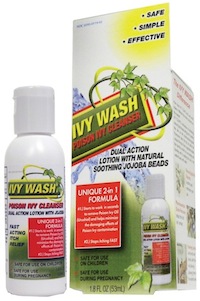DEAR DR. GOTT: I have read your comments over the years about the amount of water to drink and reviewed your comments on your website. Having tried drinking more water than I usually do a couple of times, I gave it up after spending too much time needing to urinate. I do drink two mugs of coffee, 2 mugs of decaffeinated tea, four ounces of juice with breakfast, eight ounces of wine before dinner, and six ounces of water with dinner every day. Occasionally (not every day) I also have a small glass of water if I feel thirsty. My diet is full of vegetables, fruit, meat, iced cream, etc. I love whole wheat but it causes more bathroom visits so I gave it up. I am 83 years old and in good health. My only prescription is diltiazem.
I had a Life Line screening a while ago and the girl (nurse?) who took blood from my finger could not get enough blood for the tests the first time so she punched deeper into another finger. She asked if I drank plenty of water to which I replied no. She said I should and that was the reason it was so hard to get blood from because my circulation was poor and that more water would get the blood to the ends of my fingers better. She also said it would be better for my kidneys. I made no comment. Once again I tried drinking extra water for a day but spent extra time in the bathroom and gave it up again. Is what she said true?
DEAR READER: The woman who took your blood may be correct. Dehydration can decrease blood volume. Water is also essential in aiding the kidneys in clearing toxins from the body to be expelled in the urine. If too little water is consumed, the kidneys cannot work effectively and, over time as the toxins build up, kidney stones, damage, even infection, are more likely to occur. As to whether this was why she was unable to get blood from the first finger prick is another matter. She may simply have not adequately lanced your finger; however, I will discuss why you appear to have difficulty adding extra water to your diet.
The reason you are urinating more when you add more water to your diet is because three of the beverages you consume daily, act a diuretic. Coffee, tea, and alcohol all increase urination; therefore, you would be better served by decreasing your consumption. Perhaps drinking water in place of one of your mugs of coffee and tea and decreasing the amount of wine you drink before dinner, while increasing your water intake will do the trick. In this simple way you will be increasing your water consumption while maintaining your current fluid intake. This should also prevent the extra trips to the bathroom.
A general rule of thumb is that the urine should be pale yellow or lighter. Darker urine generally signifies dehydration. Although it can also be colored by certain vitamins, foods, and medications. Try making the changes I suggested and let me know your results.
Readers who are interested in learning more can order my Health Report “Kidney Disorders” by sending a self-addressed, stamped, number 10 envelope and a $2 US check or money order to Dr. Peter Gott, PO Box 433, Lakeville, CT 06039. Be sure to mention the title or print an order form from my website, www.AskDrGottMD.com.


